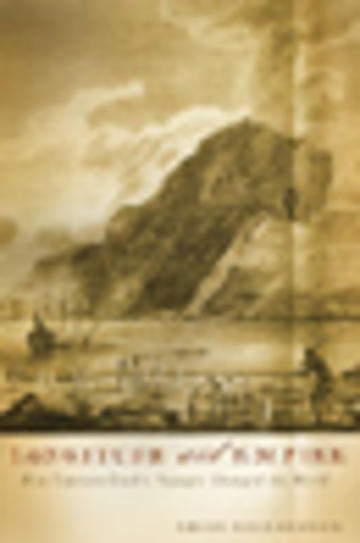About BC Books Online
BC Books Online was created for anyone interested in BC-published books, and with librarians especially in mind. We'd like to make it easy for library staff to learn about books from BC publishers - both new releases and backlist titles - so you can inform your patrons and keep your collections up to date.
Our site features print books and ebooks - both new releases and backlist titles - all of which are available to order through regular trade channels. Browse our subject categories to find books of interest or create and export lists by category to cross-reference with your library's current collection.
A quick tip: When reviewing the "Browse by Category" listings, please note that these are based on standardized BISAC Subject Codes supplied by the books' publishers. You will find additional selections, grouped by theme or region, in our "BC Reading Lists."
Before Captain Cook’s three voyages, to Europeans the globe was uncertain and dangerous; after, it was comprehensible and ordered. Written as a conceptual field guide to the voyages, Longitude and Empire offers a significant rereading of both the expeditions and modern political philosophy. More than any other work, printed accounts of the voyages marked the shift from early modern to modern ways of looking at the world. The globe was no longer divided between Europeans and savages but populated instead by an almost overwhelming variety of national identities.
Cook’s voyages took the fragmented and obscure global descriptions available at the time and consolidated them into a single, comprehensive textual vision. Locations became fixed on the map and the people, animals, plants, and artifacts associated with them were identified, collected, understood, and assimilated into a world order. This fascinating account offers a new understanding of Captain Cook’s voyages and how they affected the European world view.
Brian W. Richardson is a librarian at Windward Community College in Hawaii and is editing a collection of Hawaiian myths and legends.
- Short-listed, Harold Adams Innis Prize, Canadian Federation for the Humanities and Social Science
Employing only minimal jargon and offering clear ... explanations, Richardson analyses the text of Cook’s Voyages and interprets their impact upon the European mind and political order in a manner that might profitably be emulated by cultural theorists and literary deconstructionists ... Anthropologists such as Anne Salmond and Greg Dening have provided studies of early contacts between Pacific Natives and European largely from the former’s point of view. Richardson’s thought-provoking study reverses the lens to show the impact upon European sensibilities and growing conception of the world as a unified and precisely definable whole.
Richardson gives a clear and readable narrative about the importance of the concept of space and its relationship to people in Cook’s narratives and the influence this concept had on British perceptions of the world. The relationship between theory-driven and empirically-motivated political thought in the aftermath of Cook’s voyages is particularly clear and interesting.
But it is a mark of the achievement of this wide-ranging book that it prompts such fundamental questions and asks us to look again not just at Cook and his voyages, but also at the character of the culture which produced the grid-like view of the world of which Cook, the cartographer par excellence, was the great exponent.
A key contribution of this book is a proper examination of the ways in which Cook’s geographical thinking came to shape how we think historically and ethnographically about the whole world.



